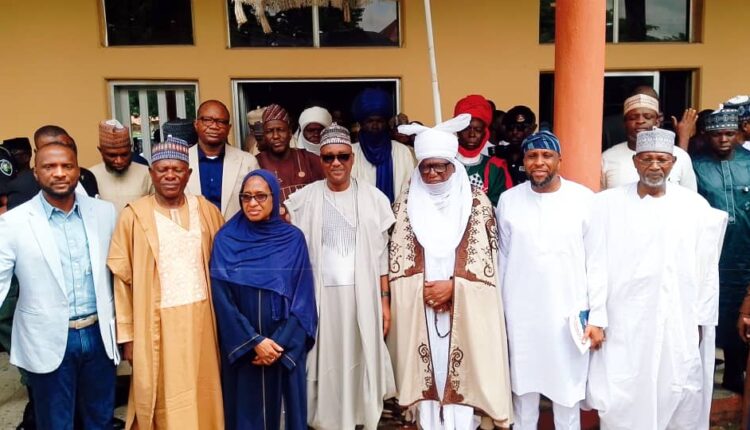
Rt. Hon. Tajudeen Abbas, Speaker of Nigeria’s House of Representatives says one of the challenges that pressure lawmakers in the country is personal and community support pleas from individual constituents.
Abbas stated this at the Nasarawa State University Keffi (NSUK) 5th Public Lecture Series held at the University in Keffi local government area of Nasarawa state held recently.

Our reporter gathered that the topic of the Speaker’s lecture is “Legislating under pressure: The realities of law making in Nigeria.”
According to him, lawmakers, especially federal lawmakers in the country face a wide range of challenges that puts them under pressure in the course of carrying out their duties among which is extraordinary pressure placed on them by individual constituents seeking personal or communal support.
“From school fees to burial contributions, job placements, hospital bills and wedding assistance. Members of the national assembly are expected not only to legislate but to directly alleviate personal hardship.
“This expectation is not merely cultural; it reflects real gaps in Nigeria’s local governance and social welfare architecture. The result is a representational burden where elected lawmakers become de facto development agents and first responders to distress,” he said.
He explained that the creation of constituency offices by the national assembly across the 360 federal constituencies and 109 senatorial districts which initially were informal have evolved over time into more structured outposts of parliamentary representation.
He added that the national assembly recognizing the need for consistency and professionalism went further to develop guidelines and manuals on constituency management office, outreach planning, staffing, documentation and service delivery.
“These frameworks have helped to formalize how legislators engage with their constituents, maintain records, prioritize community needs and handle rising demands,” he said.
He further pointed out that beyond personal requests, lawmakers have also responded through institutional mechanism for community-level development.
“Since the early 2000s, the introduction of constituency projects later formalized as Zonal Intervention projects ZIPs has provided a pathway for members to attract small-scale federal interventions to their districts,” he said.
Abbas said another challenge faced by lawmakers under pressure is that Nigerian lawmakers operate under constant media scrutiny, which though is good for accountability, but becomes immense pressure that bothers on harassment or distortion.
“Lawmakers frequently face challenges from sensational headlines, the spreading of unverified information and deliberate misinformation about their actions.
“Common narratives such as: the national assembly is just a rubber stamp or lawmakers only care about their allowance often the truth of their work,” he said.
He added that recognizing this challenge, the 10th House of Representatives shifted from reactive communication to a more proactive and structured approach to media engagement.
Abbas further listed weak legislative institution, balancing national lawmaking with constituency service, combating negative public perception and building trust, party pressure and maintaining legislative independence under executive and party pressure as other challenges faced by lawmakers under pressure.
“The 10th House of Representatives has not only acknowledged these pressures but has acted with purpose to address them.
“Through the passage of significant legislation, the introduction of institutional reforms, expanded public engagement and a more transparent approach to budgeting and oversight, we have begun to reposition the national assembly as a more proactive and people-centred institution.
“These efforts are not perfect but they mark a deliberate shift towards a legislature that sees pressure as an opportunity for innovation,” he added.
In her address, Prof. Sa’adatu Liman, Vice Chancellor, Nasarawa State University Keffi (NSUK) appreciated the Speaker for accepting the invitation to deliver the 5th Public Lecture Series of the university.
She added that his choice of topic was apt and particularly relevant to Nigeria’s socio-political landscape hence the need for those in attendance to be keenly attentive to understand the challenges and pressures lawmakers face in the discharge of their duties.
…END.


